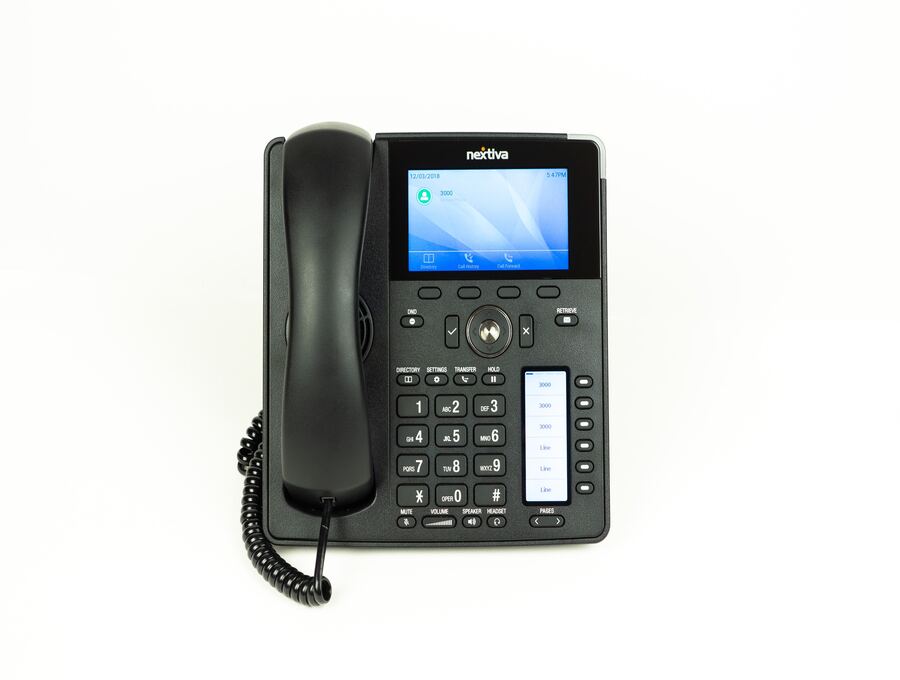Are you tired of being tied down by traditional landlines? Looking for a more flexible and cost-effective solution for your business calls? Look no further than VoIP systems! In this digital age, communication is key, and VoIP (Voice over Internet Protocol) is revolutionizing the way businesses handle their phone services. Whether you’re a small startup or an established enterprise, it’s crucial to choose the right phone system that aligns with your needs. So, let’s dive into the world of VoIP systems versus traditional landlines and discover which option is perfect for your business!
What is VoIP?
VoIP, or Voice over Internet Protocol, is a phone service that uses the internet to make and receive calls. Unlike traditional landlines that rely on copper wires, VoIP converts your voice into digital signals and transmits them through your internet connection. It’s like having a telephone system running through your computer network!
One of the key advantages of VoIP is its flexibility. With VoIP, you can make calls from anywhere as long as you have an internet connection. No more being tied to a physical office phone! Plus, it allows for seamless integration with other communication tools such as email and instant messaging.
Another benefit of VoIP is cost savings. Traditional landline systems often come with hefty installation fees and long-term contracts. In contrast, most VoIP providers offer affordable monthly plans with features like call forwarding, voicemail-to-email transcription, and virtual faxing included.
In addition to its flexibility and cost-effectiveness, VoIP also offers scalability. As your business grows or experiences fluctuations in call volume, it’s easy to add or remove extensions without any major infrastructure changes.
With all these advantages in mind, it’s no wonder why many businesses are making the switch to VoIP systems! So let’s explore further how this modern technology stacks up against traditional landlines when it comes to benefits and drawbacks.
What are the benefits of using a VoIP system?
1. Cost Savings: One of the biggest advantages of using a VoIP system is cost savings. Traditional landline systems can be expensive, with high monthly bills and additional charges for long-distance or international calls. VoIP uses internet protocol to transmit voice data, which means lower costs for both local and international calls.
2. Flexibility and Scalability: With a VoIP system, you have the flexibility to work from anywhere as long as you have an internet connection. This is especially beneficial for businesses with remote or mobile employees. Additionally, scaling your phone system up or down is much easier with VoIP compared to traditional landlines.
3. Advanced Features: VoIP offers a wide range of advanced features that can enhance communication within your business. These include call forwarding, voicemail-to-email transcription, auto-attendant menus, video conferencing capabilities, and more.
4. Integration with Other Systems: Another advantage of using VoIP is its ability to integrate with other communication tools and software such as CRM systems or email clients. This integration allows for streamlined workflows and improved productivity.
5. Reliability and Redundancy: Many modern VoIP providers offer reliable service with built-in redundancy measures in place to ensure minimal downtime in case of network issues or power outages.
What are the disadvantages of using a traditional landline system?
When it comes to traditional landline systems, there are a few disadvantages that can make them less appealing for businesses in today’s digital age. One major drawback is the lack of flexibility and mobility. With a traditional landline, your phone system is tied to a physical location, meaning you cannot easily take calls or access your business line on the go.
Another disadvantage is the limited features and capabilities of traditional landlines compared to VoIP systems. Landlines typically offer basic calling features such as call waiting and voicemail, but they often lack more advanced functionalities like call forwarding, video conferencing, and auto-attendant options.
Additionally, maintaining a traditional landline system can be costly. Businesses have to invest in expensive equipment upfront and pay for ongoing maintenance fees. If you need to expand or scale your phone system, it may require significant investments in infrastructure upgrades.
Moreover, with traditional landlines, businesses are restricted by their geographical limitations. Long-distance calls can be expensive and international calls even more so. This can hinder communication with clients or partners located outside of your local area.
During power outages or network disruptions, traditional landline systems may become completely inaccessible. This could result in missed opportunities and potential loss of business if customers are unable to reach you during these periods.
Which VoIP system is right for your business?
When it comes to choosing the right VoIP system for your business, there are several factors you need to consider. One of the first things you should evaluate is the size of your business and how many employees will be using the system. This will help determine whether a hosted or on-premise solution would be more suitable.
Next, think about what features are essential for your specific needs. Are conference calling and call forwarding important? Do you require integration with other software applications such as CRM or email systems? Make a list of must-have features to narrow down your options.
Consider your budget as well. VoIP systems can vary greatly in terms of cost, so it’s crucial to find one that aligns with your financial resources without compromising functionality.
Furthermore, assess the scalability and flexibility of each VoIP provider. As businesses grow and evolve, they may require additional lines or extensions. Look for a system that can easily accommodate expansion.
Don’t forget to read reviews and seek recommendations from other business owners in similar industries. Their experiences can provide valuable insights into which providers offer reliable service and excellent customer support.
Remember, selecting the right VoIP system is an important decision that will impact communication within your organization. Take the time to thoroughly research different options before making a final choice!
How can you choose the right VoIP system for your business?
When it comes to choosing the right VoIP phone system for your business, there are several factors to consider. First and foremost, you need to assess the specific needs of your company. How many employees will be using the system? Will you require advanced features such as call recording or video conferencing? Understanding these requirements will help narrow down your options.
Next, take into account the scalability of the VoIP system. As your business grows, you may need to add more lines or expand your capabilities. Look for a provider that offers flexible plans and easy upgrades to accommodate future growth.
Reliability is another crucial factor in selecting a VoIP system. Make sure to choose a provider with a strong track record and reliable customer support. Downtime can result in lost productivity and missed opportunities, so it’s essential to have a dependable service.
Consider integration capabilities as well. If you already use other communication tools or software in your business operations, look for a VoIP system that seamlessly integrates with them. This will streamline workflows and enhance efficiency.
Evaluate pricing options carefully while keeping in mind both short-term affordability and long-term value. Compare different providers’ plans and features to find one that aligns with your budget without compromising on quality.
By considering these factors – assessing needs, scalability, reliability, integration capabilities, and pricing – you can make an informed decision when choosing the right VoIP system for your business.
Conclusion
When it comes to choosing between a VoIP system and a traditional landline for your business, there are several factors to consider. Both options have their pros and cons, but ultimately, the decision depends on your specific needs and preferences.
VoIP offers numerous benefits such as cost savings, scalability, flexibility, advanced features, and mobility. It allows businesses to communicate seamlessly over the internet while enjoying lower costs compared to traditional landlines. Additionally, with VoIP systems being cloud-based, you can easily scale up or down based on your business requirements.
On the other hand, traditional landlines provide reliability and security that some businesses may prefer. They have been around for decades and offer a familiar interface that many employees are comfortable using. However, they are often more expensive in terms of installation costs and monthly fees.








